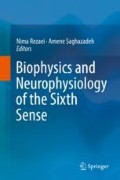Abstract
The popular definitions of intuition converge on four aspects: nonconscious information processing, holistic associations, affectively charged, and speed (Dane E, Pratt MG. Conceptualizing and measuring intuition: a review of recent trends. In: International review of industrial and organizational psychology, vol. 24; 2009. p. 1–40). With this and similar definitions, it is not surprising that the term intuition conceptually overlaps with other related cognitive constructs such as creativity (Finke RA, Ward TB, Smith SM. Creative cognition: theory, research, and applications. 1992), tacit knowledge (Reber AS. Implicit learning and tacit knowledge: an essay on the cognitive unconscious (Oxford Psychology Series, No 19). Oxford: Oxford University Press; 1993), implicit learning and knowledge (Dienes Z, Berry D, Psychon Bull Rev, 4(1):68–72, 1997; Reber AS, J Exp Psychol Gen, 118(3):219, 1989), instinct, and insight (Mayer RE. The search for insight: Grappling with Gestalt psychology’s unanswered questions. 1995; Nisbett RE, Ross L. Human inference: strategies and shortcomings of social judgment. p. 1980). The present chapter discusses neural correlates of intuition in the different contexts.
Access this chapter
Tax calculation will be finalised at checkout
Purchases are for personal use only
References
Dane E, Pratt MG. Conceptualizing and measuring intuition: a review of recent trends. In: International review of industrial and organizational psychology, vol. 24; 2009. p. 1–40.
Finke RA, Ward TB, Smith SM. Creative cognition: theory, research, and applications. Cambridge: MIT Press; 1992.
Reber AS. Implicit learning and tacit knowledge: an essay on the cognitive unconscious (Oxford Psychology Series, No 19). Oxford: Oxford University Press; 1993.
Dienes Z, Berry D. Implicit synthesis. Psychon Bull Rev. 1997;4(1):68–72.
Reber AS. Implicit learning and tacit knowledge. J Exp Psychol Gen. 1989;118(3):219.
Mayer RE. The search for insight: Grappling with Gestalt psychology’s unanswered questions. 1995.
Nisbett RE, Ross L. Human inference: strategies and shortcomings of social judgment. Englewood Cliffs: Prentice-Hall; 1980.
Hodgkinson GP, Langan-Fox J, Sadler-Smith E. Intuition: a fundamental bridging construct in the behavioural sciences. Br J Psychol. 2008;99(1):1–27.
Hodgkinson GP, Sadler-Smith E, Burke LA, Claxton G, Sparrow PR. Intuition in organizations: implications for strategic management. Long Range Plan. 2009;42(3):277–97.
Reber AS. Implicit learning of artificial grammars. J Verbal Learn Verbal Behav. 1967;6(6):855–63.
DeKeyser R. Implicit and explicit learning. In: Doughty CJ, Long MH, editors. The handbook of second language acquisition, vol. 27; 2008. p. 313. https://doi.org/10.1002/9780470756492.ch11.
Lieberman MD. Intuition: a social cognitive neuroscience approach. Psychol Bull. 2000;126(1):109.
Dehaene S, Spelke E, Pinel P, Stanescu R, Tsivkin S. Sources of mathematical thinking: behavioral and brain-imaging evidence. Science. 1999;284(5416):970–4.
Kuo W-J, Sjöström T, Chen Y-P, Wang Y-H, Huang C-Y. Intuition and deliberation: two systems for strategizing in the brain. Science. 2009;324(5926):519–22.
Bowers KS, Regehr G, Balthazard C, Parker K. Intuition in the context of discovery. Cogn Psychol. 1990;22(1):72–110.
Volz KG, Rübsamen R, von Cramon DY. Cortical regions activated by the subjective sense of perceptual coherence of environmental sounds: a proposal for a neuroscience of intuition. Cogn Affect Behav Neurosci. 2008;8(3):318–28.
Volz KG, von Cramon DY. What neuroscience can tell about intuitive processes in the context of perceptual discovery. J Cogn Neurosci. 2006;18(12):2077–87.
Horr NK, Braun C, Volz KG. Feeling before knowing why: the role of the orbitofrontal cortex in intuitive judgments—an MEG study. Cogn Affect Behav Neurosci. 2014;14(4):1271–85.
Luu P, Geyer A, Fidopiastis C, Campbell G, Wheeler T, Cohn J, et al. Reentrant processing in intuitive perception. PLoS One. 2010;5(3):e9523.
Bolte A, Goschke T, Kuhl J. Emotion and intuition: effects of positive and negative mood on implicit judgments of semantic coherence. Psychol Sci. 2003;14(5):416–21.
Lieberman MD, Gaunt R, Gilbert DT, Trope Y. Reflexion and reflection: a social cognitive neuroscience approach to attributional inference. Adv Exp Soc Psychol Elsevier; 2002. p. 199–249.
Lieberman MD, Jarcho JM, Satpute AB. Evidence-based and intuition-based self-knowledge: an FMRI study. J Pers Soc Psychol. 2004;87(4):421–35.
Limb CJ, Braun AR. Neural substrates of spontaneous musical performance: an FMRI study of jazz improvisation. PLoS One. 2008;3(2):e1679.
Wan X, Takano D, Asamizuya T, Suzuki C, Ueno K, Cheng K, et al. Developing intuition: neural correlates of cognitive-skill learning in caudate nucleus. J Neurosci. 2012;32(48):17492–501.
Frank MJ, O’Reilly RC, Curran T. When memory fails, intuition reigns: midazolam enhances implicit inference in humans. Psychol Sci. 2006;17(8):700–7.
Frederick S. Cognitive reflection and decision making. J Econ Perspect. 2005;19(4):25–42.
Toplak ME, West RF, Stanovich KE. The cognitive reflection test as a predictor of performance on heuristics-and-biases tasks. Mem Cogn. 2011;39(7):1275.
Toplak ME, West RF, Stanovich KE. Assessing miserly information processing: an expansion of the cognitive reflection test. Think Reason. 2014;20(2):147–68.
Alter AL, Oppenheimer DM, Epley N, Eyre RN. Overcoming intuition: metacognitive difficulty activates analytic reasoning. J Exp Psychol Gen. 2007;136(4):569.
Author information
Authors and Affiliations
Corresponding author
Editor information
Editors and Affiliations
Rights and permissions
Copyright information
© 2019 Springer Nature Switzerland AG
About this chapter
Cite this chapter
Saghazadeh, A., Rahmani, F., Rezaei, N. (2019). Neurocircuitry of Intuition. In: Rezaei, N., Saghazadeh, A. (eds) Biophysics and Neurophysiology of the Sixth Sense. Springer, Cham. https://doi.org/10.1007/978-3-030-10620-1_30
Download citation
DOI: https://doi.org/10.1007/978-3-030-10620-1_30
Published:
Publisher Name: Springer, Cham
Print ISBN: 978-3-030-10619-5
Online ISBN: 978-3-030-10620-1
eBook Packages: Biomedical and Life SciencesBiomedical and Life Sciences (R0)

